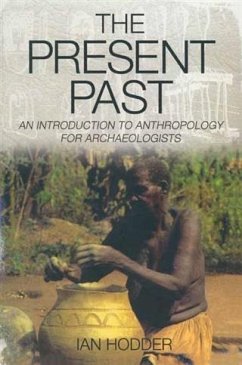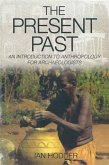This updated edition of Professor Ian Hodder's original and classic work on the role which anthropology must play in the interpretation of the archaeological record.There has long been a need for archaeologists and anthropologists to correlate their ideas and methods for interpreting the material culture of past civilisations. Archaeological interpretation of the past is inevitably based on the ideas and experiences of the present and the use of such ethnographic analogy has been widely adapted - and criticised, not least in Britain.In this challenging study, Ian Hodder questions the assumptions, values and methods which have been too readily accepted. At the same time, he shows how anthropology can be applied to archaeology. He examines the criteria for the proper use of analogy and, in particular, emphasises the need to consider the meaning and interpretation of material cultures within the total social and cultural contexts. He discusses anthropological models of refuse deposits, technology and production, subsistence, settlement, burial, trade exchange, art form and ritual; he then considers their application to comparable archaeological data.Throughout, Professor Hodder emphasises the need for a truly scientific approach and a critical self-awareness by archaeologists, who should be prepared to study their own social and cultural context, not least their own attitudes to the present-day material world.
Dieser Download kann aus rechtlichen Gründen nur mit Rechnungsadresse in A, B, BG, CY, CZ, D, DK, EW, E, FIN, F, GR, HR, H, IRL, I, LT, L, LR, M, NL, PL, P, R, S, SLO, SK ausgeliefert werden.









